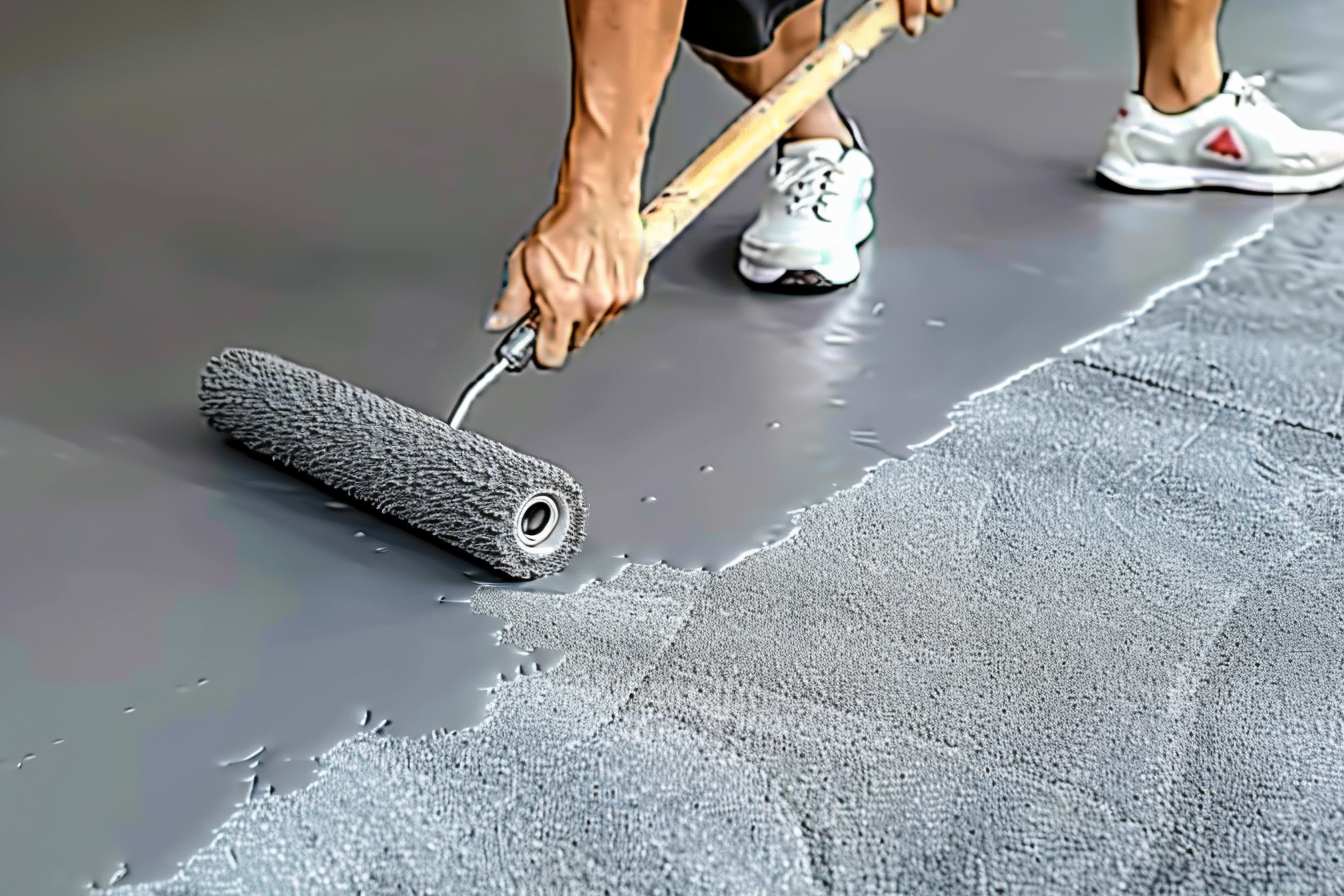DIY Garage Floor Coatings: Easy Installation Options for Every Budget
Transforming your garage floor from a dull, stained concrete slab into a durable, attractive surface can dramatically improve your home's functionality and appearance. With the wide range of DIY-friendly garage flooring options available today, Australian homeowners no longer need to hire professionals for impressive results. This comprehensive guide explores various easy-to-install garage flooring solutions, comparing materials, costs, and installation processes to help you make an informed decision that matches your needs and budget.

Benefits of Upgrading Your Garage Floor with Easy-to-Install Options
Upgrading your garage floor offers numerous advantages beyond mere aesthetics. A quality floor coating provides protection against oil stains, chemical spills, and tire marks that plague untreated concrete. Modern garage floor solutions also resist moisture, preventing mold growth and concrete deterioration. Additionally, these coatings can increase slip resistance, making your garage safer for both vehicles and foot traffic.
From a practical standpoint, many DIY garage flooring options feature thermal insulation properties that help regulate garage temperature. Most importantly, today’s user-friendly installation methods mean you can achieve professional-looking results without specialized skills or expensive equipment, saving significant money compared to contractor-installed options while adding substantial value to your property.
Types of Garage Flooring That Require No Professional Installation
Several garage flooring options stand out for their DIY-friendly nature. Interlocking floor tiles made from polypropylene or PVC create a floating floor system that requires no adhesives or special tools—simply snap the pieces together over your existing concrete. These tiles come in various colors, patterns, and surface textures, allowing for customization to match your preferences.
Roll-out mats offer perhaps the simplest installation process. Made from rubber, vinyl, or polyvinyl, these mats come in large rolls that you simply unroll across your garage floor. Some feature adhesive backing, while others rely on their weight to remain in place. For those seeking a more permanent solution, DIY epoxy kits provide a liquid coating that bonds chemically with concrete, creating a seamless, glossy finish. While requiring more preparation, these kits include step-by-step instructions suitable for weekend warriors.
Another increasingly popular option is polyaspartic coating, which offers quicker curing times than traditional epoxy, allowing completion in a single weekend rather than multiple days of installation.
Comparison of Interlocking Tiles, Roll-Out Mats and Epoxy Coatings
Each garage flooring option presents distinct advantages depending on your priorities. Here’s how they compare:
| Flooring Type | Installation Difficulty | Durability | Cost Range | Installation Time |
|---|---|---|---|---|
| Interlocking Tiles | Very Easy (4/10) | 7-10 years | $8-$15 per sq ft | 2-4 hours |
| Roll-Out Mats | Extremely Easy (2/10) | 5-7 years | $3-$8 per sq ft | 30-60 minutes |
| DIY Epoxy Kits | Moderate (6/10) | 5-10 years | $3-$7 per sq ft | 2-3 days |
| Polyaspartic Coating | Moderate (7/10) | 10-15 years | $7-$12 per sq ft | 1-2 days |
Prices, rates, or cost estimates mentioned in this article are based on the latest available information but may change over time. Independent research is advised before making financial decisions.
Interlocking tiles excel in customization and can be installed over imperfect concrete, while their modular nature allows for easy replacement of damaged sections. Roll-out mats offer unbeatable simplicity but may shift under heavy vehicle traffic. Epoxy provides the most polished appearance and excellent chemical resistance, though it requires extensive floor preparation and longer curing periods. Polyaspartic coatings combine epoxy’s durability with faster installation but typically come at a higher price point.
How to Choose the Best Garage Flooring for Your Budget and Usage
Selecting the appropriate garage flooring depends on several key factors. First, consider your primary garage use. For workshops or home gyms, interlocking tiles offer comfortable standing surfaces with good impact resistance. If your garage primarily houses vehicles, epoxy or polyaspartic coatings provide superior resistance to hot tire marks and fluid leaks.
Budget considerations extend beyond initial costs to lifetime value. While roll-out mats offer the lowest upfront investment, their shorter lifespan means more frequent replacement. Epoxy and polyaspartic coatings typically deliver the best long-term value despite higher initial costs and more involved installation.
Climate factors also matter significantly in Australia’s diverse environments. In humid coastal areas, moisture-resistant options like quality epoxy or specialized tiles prevent mold and mildew. For extreme temperature regions, look for materials with thermal expansion properties that won’t crack or warp with temperature fluctuations.
Tips for Quick and Easy Garage Floor Installation at Home
Regardless of which flooring type you choose, proper preparation ensures the best results. Start by thoroughly cleaning your existing concrete surface—remove all oil stains, dust, and loose debris. For epoxy installations, etching the concrete with a mild acid solution improves adhesion significantly.
Timing matters tremendously, especially for chemical coatings. Plan your installation during mild, dry weather with temperatures between 15-25°C for optimal curing. Always read and follow manufacturer instructions regarding temperature limitations, as some products won’t cure properly in extreme conditions.
Equipment preparation saves significant time and frustration. Gather all necessary tools before beginning—common requirements include measuring tape, utility knife, painter’s tape, mixing buckets, rollers, and appropriate safety gear. For tile installations, consider purchasing a rubber mallet to ensure tight connections without damaging the tiles themselves.
For multi-day installations like epoxy, clear your garage completely and arrange alternative parking during the project. Most importantly, don’t rush the process—proper curing time directly impacts durability, especially for chemical coatings that may require 24-72 hours before light foot traffic and 7+ days before returning vehicles.
Upgrading your garage floor through DIY-friendly options provides an excellent return on investment while significantly improving your home’s functionality. By understanding the benefits, types, comparative advantages, and installation best practices of various garage flooring solutions, you can confidently select and install the perfect option for your specific needs, budget, and technical comfort level.



